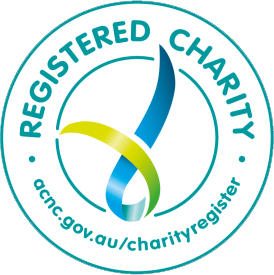Beth initially thought her fainting spells were due to growing pains and was shocked to be diagnosed with Astrocytoma Grade 2.
Thirteen years on, while grateful to be a long-term survivor, she is aware that at any time the cancer could return.
Age 19, Beth had been suffering from headaches, dizziness and fainting, which she attributed to her youth and to general exhaustion.
I remember so distinctly I was studying and looking up wondering why the lights in the room were getting brighter and brighter, and proceeded to faint.
The frequency of the attacks increased from monthly to weekly, but it was only when her mother found her after a fainting fit that Beth sought medical care.
She has vivid memories of the shock of receiving the diagnosis from her GP, the feelings of confusion and the nagging, internal question, “Why me?”

Her parents were also left reeling, struggling to take in the news that their only child had been told she might have just months left to live. A strong family unit, they rallied together, supporting one another through the initial difficult and confronting months.
13 YEARS ON…
Beth is doing well, however she still needs yearly monitoring scans and there are daily reminders of her diagnosis. She now wears a wig having lost much of her beautiful thick hair as a result of the treatments. Her eyesight has also been compromised.
While acknowledging the feelings of grief and loss, Beth feels fortunate to be a long-term survivor and has made it her mission to turn her experience into positive action. She has organised annual events to raise awareness of brain cancer in her hometown of Wollongong, and continues to speak out on the importance of clinical trials and immunotherapy treatments.

I wish I had information from long-term survivors when I was first diagnosed ... that’s what gives me passion to advocate. Being able to advocate for brain cancer if I can is a blessing and a privilege that most sufferers don’t get the opportunity to do!
Beth came across the Brain Cancer Collective as part of her research as a social worker and was impressed by the large-scale, coordinated projects the Collective is supporting.
Who knows when my tumour will start growing back? I am a patient who could benefit in the future from the Brain Cancer Collective’s collaborative research infrastructure goal.
Beth recognizes that she has been incredibly lucky to have survived this long, the memory of that initial diagnosis lingers, triggering concern with every headache she experiences.
Every time I get a headache or start to feel light-headed, I worry if there is a bigger meaning to those headaches, taking me back to that time 13 years ago. Those anxieties are an unexpected aspect of long-term survivorship with brain cancer.
Although the future remains uncertain and there may be hurdles ahead, Beth and her husband hope that they will soon be able to start a family, pending input from her doctors.
Hope is a buzzword at the moment, but the hope the Brain Cancer Collective brings to the brain cancer population is immense. That is why I wish to assist in any way I can.



